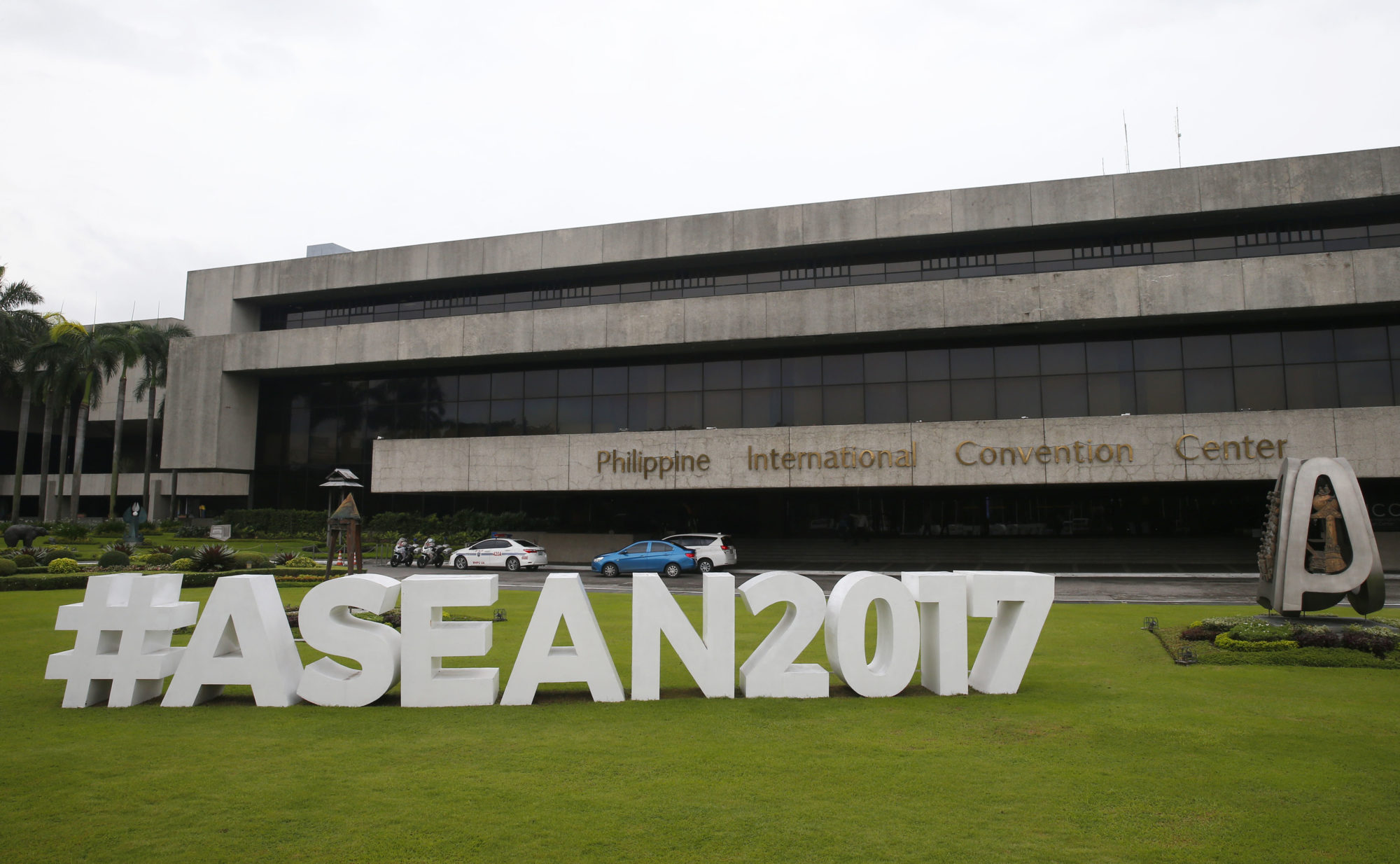
The Philippine International Convention Center, the venue for the Aug. 2-8, 2017 50th Asean Foreign Ministers’ Meeting, is seen Wednesday, Aug. 2, 2017 in Pasay City. An initial draft of a joint communique to be issued by the Asean foreign ministers says they would ask senior diplomats to immediately initiate talks on the so-called code of conduct in the disputed sea after their governments agreed on a framework of the accord with China in May. (Photo by BULLIT MARQUEZ / AP)
As far as the Philippines is concerned, the code of conduct over the South China Sea that is in the works will be legally binding, according to the Department of Foreign Affairs (DFA).
In a press conference at the International Media Center, DFA spokesperson Robespierre Bolivar reiterated that the position of Foreign Affairs Secretary Alan Peter Cayetano that the code of conduct, guided by a framework set to be endorsed to the foreign ministers, would be legally binding.
READ: ‘Code of Conduct framework not instrument to settle territorial disputes’
The DFA made the statement as the foreign ministers of Australia, Japan, and the United States reportedly urged the Association of Southeast Asian Nations (Asean) and China to come up with a sea code of conduct that would be “legally binding, meaningful, effective, and consistent with international law.”
“I believe the secretary-general a couple of days ago mentioned that there was an agreement among the Asean foreign ministers that the preference is for a legally binding code of conduct and let me speak of the Philippines position,” Bolivar said.
Bolivar said Cayetano also took the position that the code of conduct should not only be legally binding but should also be effective.
“It was expressed by Secretary Cayetano in a couple of interviews that the Philippine preference is for a legally binding code of conduct, but more than that the code of conduct has to be effective,” Bolivar said.
Bolivar said the three countries’ call for the Asean and China to come up with a legally binding code of conduct only reflected Asean’s joint communique.
“If you look at the statement of the [US] State Department, the portion on the South China Sea is basically the reiteration of the same principles, the same consensus by Asean in different statements. So we don’t see any dissonance in what they said and what ASEAN has already said,” Bolivar said.
With the Philippines’ warmer ties between the Philippines and China under President Rodrigo Duterte, the Asean chairman message this year was silent on China’s reclamation activities and militarization on the disputed waters.
Duterte has even vowed to “set aside” the ruling of the Permanent Court of Arbitration favoring the Philippines in its maritime dispute with China. /atm